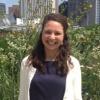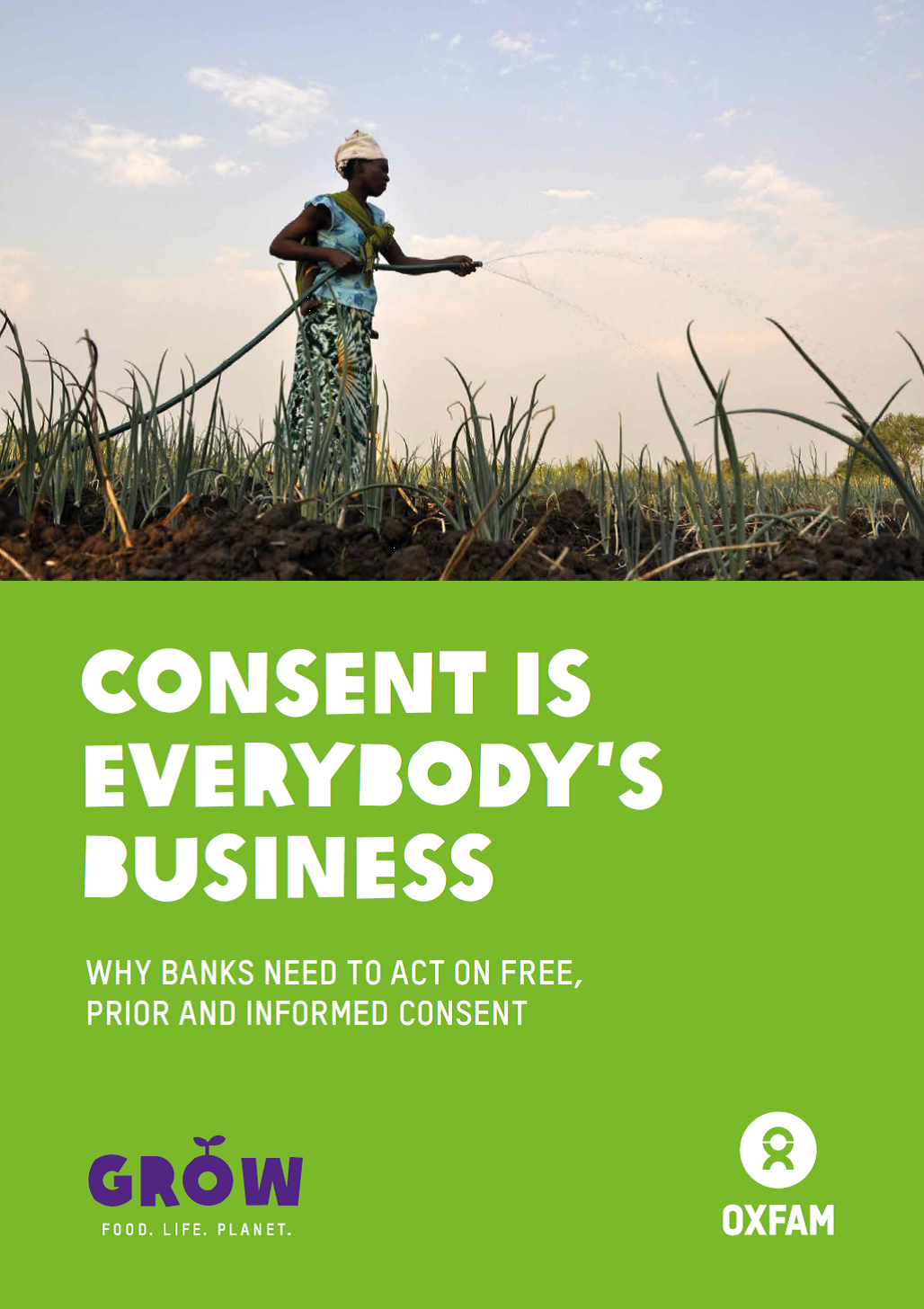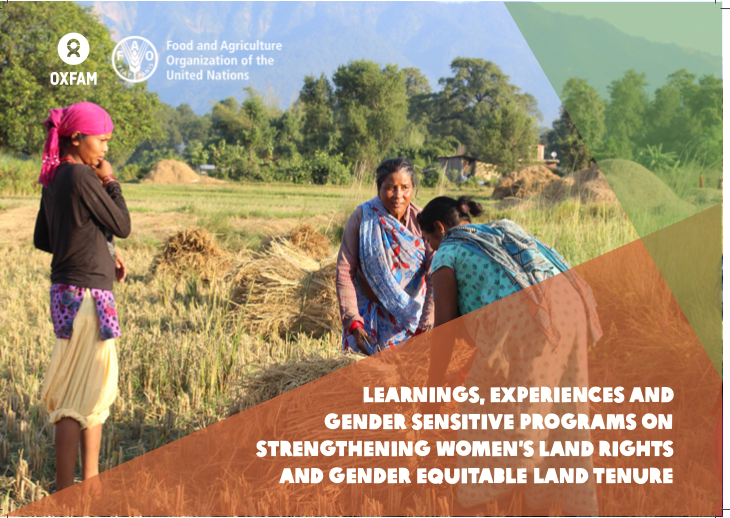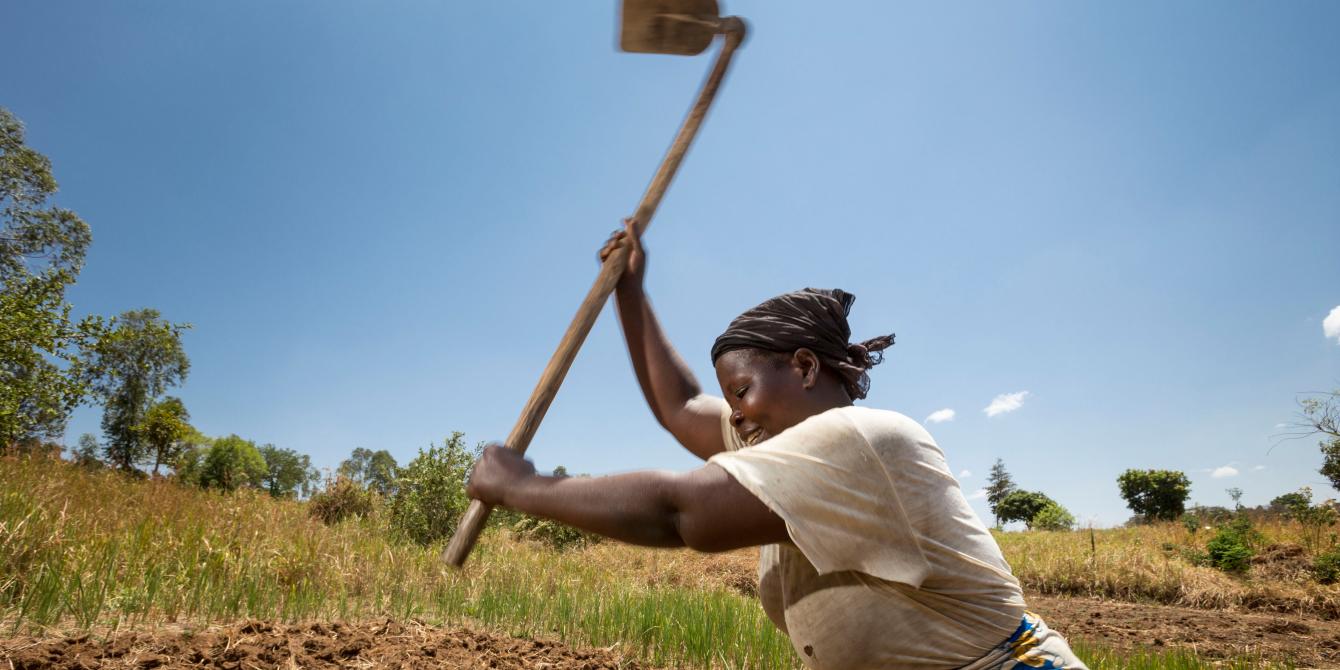Our Vision
Our vision is a just world without poverty. We want a world where people are valued and treated equally, enjoy their rights as full citizens, and can influence decisions affecting their lives.
Our Purpose
Our purpose is to help create lasting solutions to the injustice of poverty. We are part of a global movement for change, empowering people to create a future that is secure, just, and free from poverty.
Achieving our Purpose
We use a combination of rights-based sustainable development programs, public education, campaigns, advocacy, and humanitarian assistance in disasters and conflicts.
We challenge the structural causes of the injustice of poverty, and work with allies and partners locally and globally.
Resources
Displaying 21 - 25 of 128Consent is Everybody's Business: Why banks need to act on free, prior and informed consent
A community’s choice to give, or withhold, their free, prior and informed consent (FPIC) to a project or activity planned to take place on their land is a recognized right of Indigenous peoples under international law. It is also a best practice principle that applies to all communities affected by projects or activities on the land, water and forests that they rely on.
UK Food Security and Climate Change
This primer explains the current situation concerning the United Kingdom’s food supply and how this is likely to change in the medium and long term as a result of climate change. It discusses likely threats to UK food security emerging from a range of potential warming scenarios and the current policy debate on how to address them effectively.
Learnings, Experiences and Gender Sensitive Programs on Strengthening Women’s Land Rights and Gender Equitable Land Tenure
This report contains experiences and learning achieved by participants of "Governing Land for Men and Women" a three-month learning programme jointly launced by Oxfam in Nepal and UN FAO.
You will find in this report opinion of the programme participants on recognising and securing land rights of women, poor and vulnerable groups in Nepal.
Land As A Driver Of Inequality
Inequities in land ownership and access are possibly one of the most common injustices that have persisted in Uganda since the pre-colonial times. Unfair land use policies and practices and the lack of security of tenure must be immediately addressed if Uganda is to achieve its development goals under the National Development Plan II and most of the Sustainable Development Goals.
Oxfam is working in Uganda together with partners to address the drivers of extreme inequality and injustice such as Land.
Una economía que funcione para el 99%
A nivel mundial, ocho hombres poseen la misma riqueza que la mitad más pobre del planeta. En México, cuatro millonarios(as) tienen tanta riqueza como el 50% más pobre de la población.







